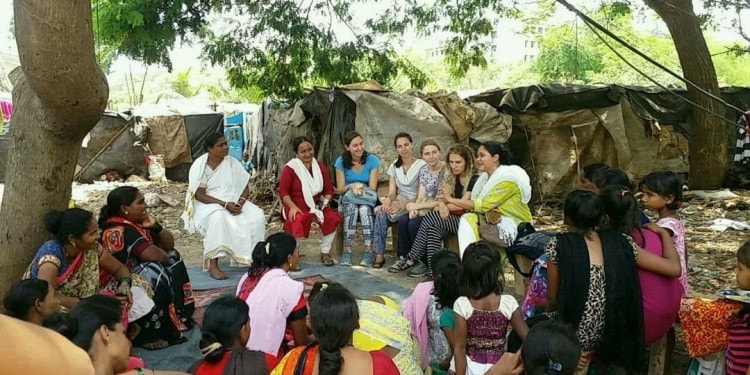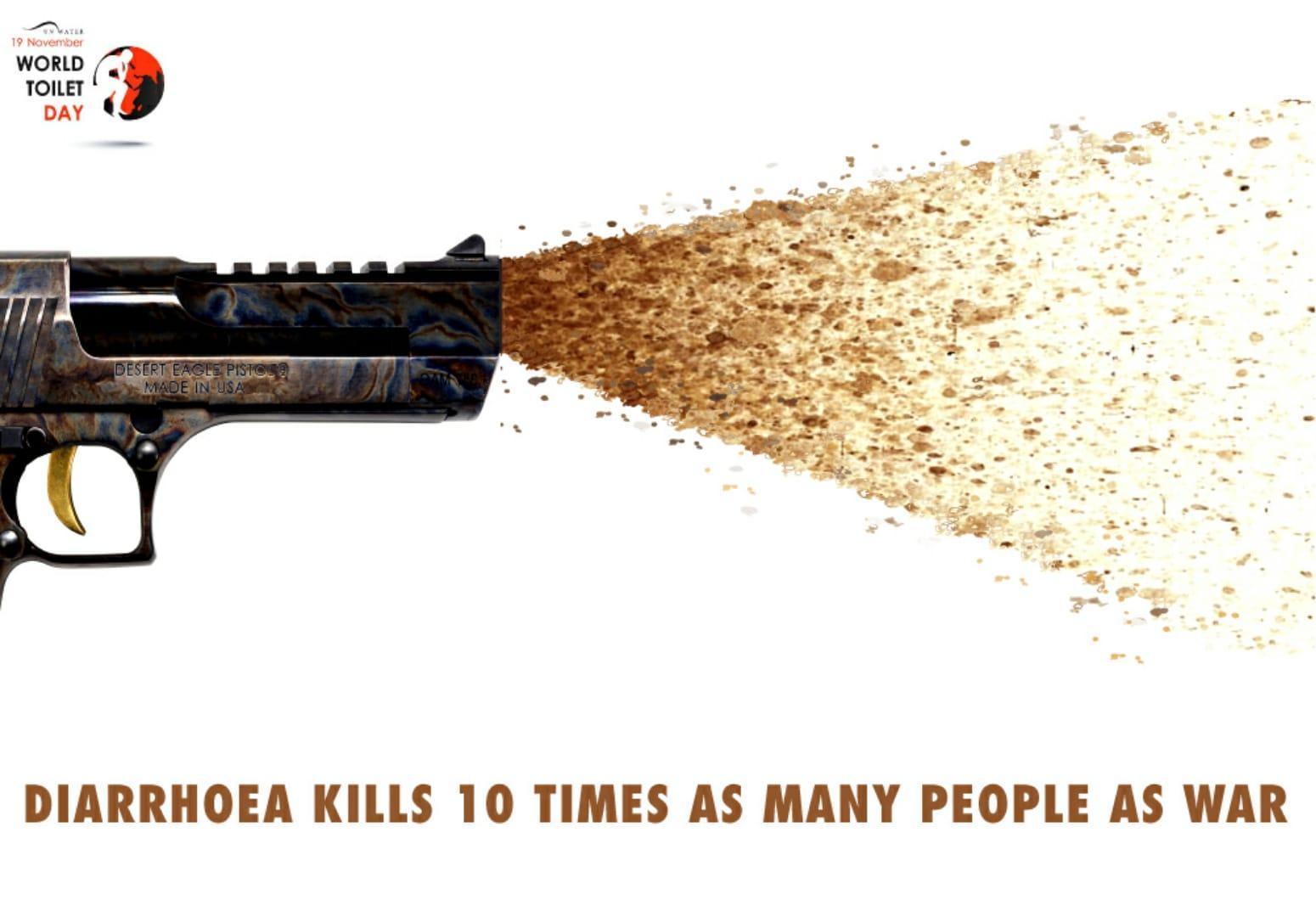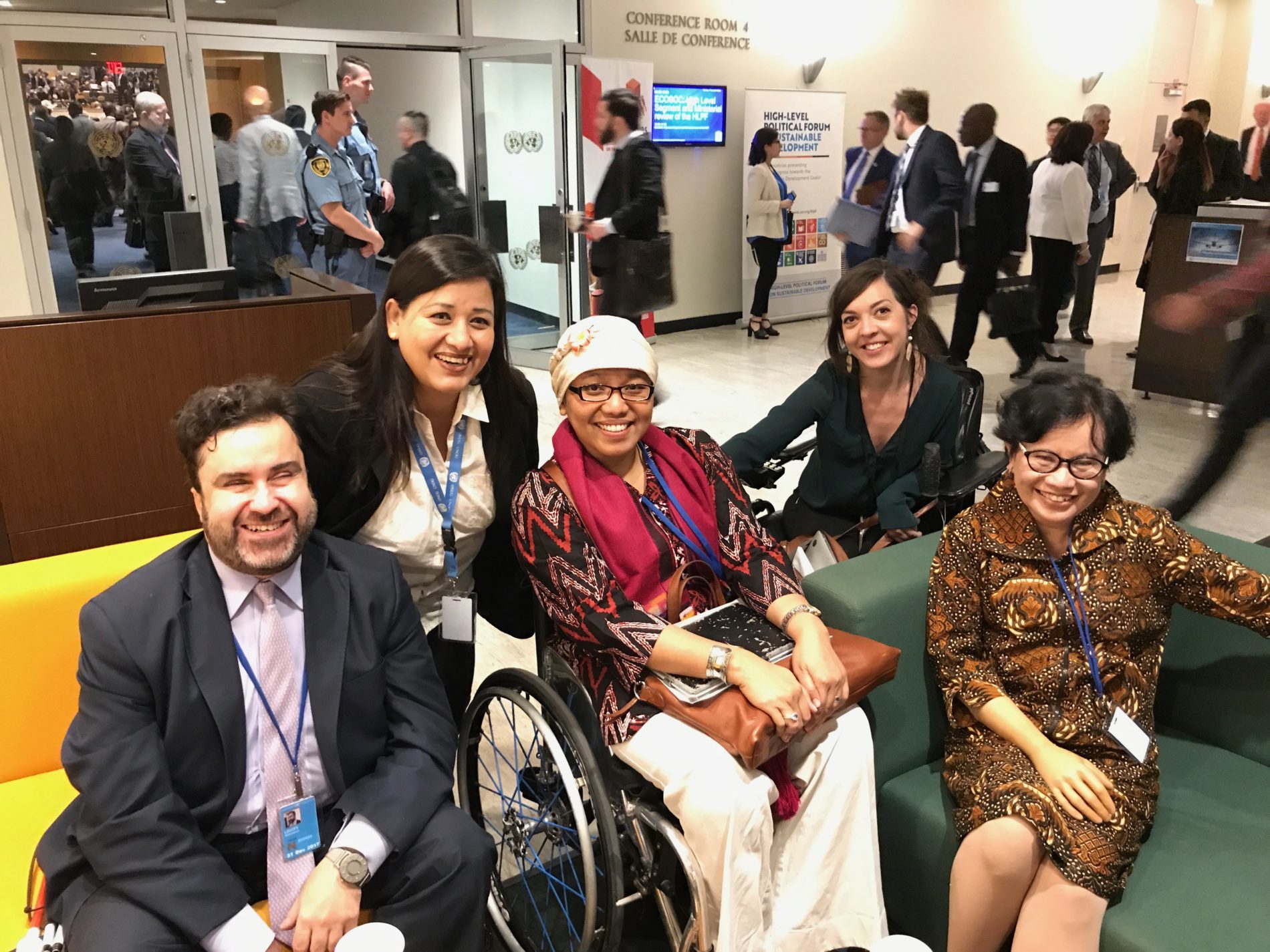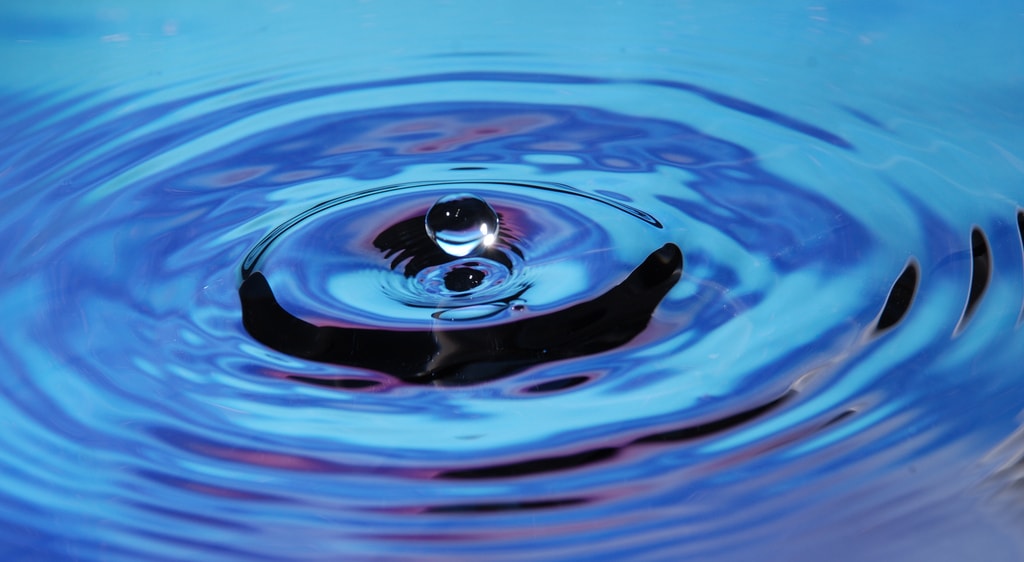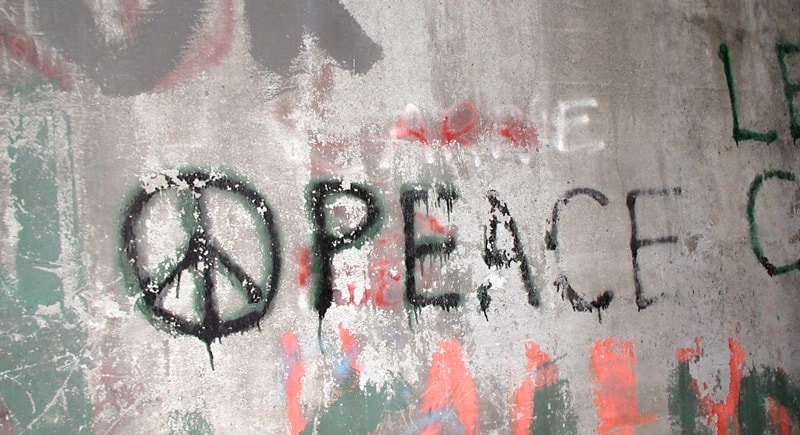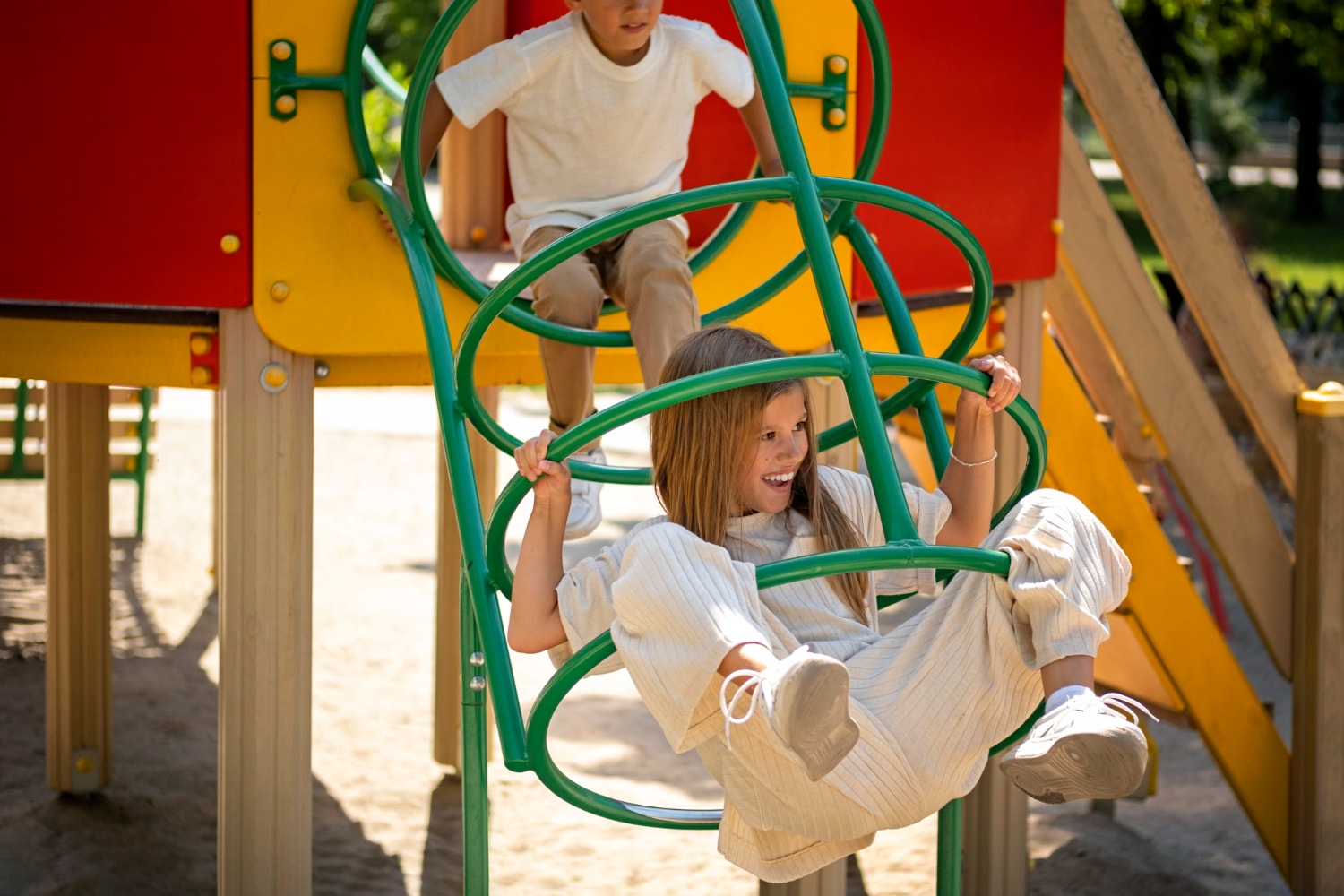Sarika Gupta is the founder of a India based non-profit organisation called ‘Safe n’ Happy Periods’. She is also an MBA graduate, a co-founder of Aegis School of Business and once headed the training division for the prominent Indian business school, IIM Indore. Sarika created Safe n’ Happy Periods to increase education and awareness of menstrual hygiene in India. It was during her time in the USA that she realised how much more comfortable American woman are talking about and confronting issues surrounding menstruation. In India, 66% of girls do not know about periods before their first one (Unicef MHM), 10% of girls think that menstruation is a disease (UKAID) and 14% of girls suffer from menstrual infection due to lack of education or poor hygiene (Wateraid). I had the privilege of working with Sarika during a 6 week internship in Navi Mumbai.
Sarika visits schools, women’s groups and underprivileged areas to give workshops, teach yoga techniques to manage pain and distribute pads that have been donated. She has given workshops to 12,000 adolescent girls and 3,000 women since Safe n’ Happy Periods was founded in February 2016: these numbers span the Indian states of Maharashtra, Himachal Pradesh and her home state of Rajasthan, and now include Ghana where she has travelled to learn from organisations doing similar work. Sarika hopes to impact the whole menstrual ecosystem: the organisation has designed and distributes a sanitary disposable bag, which serves to separate sanitary waste in landfills and limit the exposure to rag pickers. Sarika hopes that by dispelling stigmas through education she can help to dignify menstruation and allow women to participate more in public spaces. Improving sanitation is the key to giving women more agency and increasing their ability to attend work and school.
Q. What is the vision for the NGO?
The vision of the NGO is to reach out to more and more school girls. That’s the right time to know about menstruation, especially when they’re about to have their first period. We wish to go to more and more schools and women groups, so that they become comfortable talking about it. Only then can we talk about the potential health risks that come from a lack of menstrual education. And not just going to these places, but we also want to informally develop a community wherein women feel comfortable to come and talk to us: and then they become our change agents, where they can go and spread the information themselves.
Q. Why did you choose to focus on menstruation rather than another issue for women in India?
We chose to focus on menstruation because we recognise that a big chunk of the population in India have no absolute knowledge of it. They just know bits and pieces here and there. So we just wanted to come forward as someone who can give them most of the education and inform them, so they are comfortable enough to talk about it, and understand the importance of menstruation and why they need to take pride in it. They can’t feel shame in talking about it. If you look at the health statistics in India regarding menstruation it gives a very dark picture, so this topic really needs a lot of focus and engagement.
Q. What are some of the differences between rural and urban menstrual problems?
People in urban areas have overcome the superstitions because of changes in society. Particularly the rise of nuclear families, meaning one family per house. One strong myth about menstruation is that women cannot enter the kitchen or touch food while they menstruate, or it will cause contamination. Whereas in nuclear families the woman has to go into the kitchen, because there would be no one else to cook instead if the husband is working. There is also a superstition that women cannot enter temples while menstruating. On this issue, people {in both rural and urban areas} are still not sure whether to believe it: they themselves are not clear.
Q. Is there any person or organisation you aspire to be like?
There are so many people who inspire you in your journey. But I think my own experiences in life is what drives me to connect to more and more people, not just menstrual education but meditation and yoga. That is woman empowerment for me. Lectures are good to some extent, but yoga and meditation brings an internal change in you that makes you strong, that empowers you. This inspires me.
Q.What advice would you give to young women in India entering male dominated fields?
In India you are finding a huge increase in female entrepreneurs. Its not the same as it was 20 years ago. They do have a lot of support from families and friends, as even the business scenario in India now has changed a lot. The government is very supportive, but I feel that if you want to be an entrepreneur you really have to have a very strong desire and a real willpower to sustain yourself through the challenges to come. The situation for men and women is quite similar in business, but women probably need a lot of support from husbands and families to keep supporting them.
Q. Do you think modern feminism can be applied to Indian society?
It’s a little complicated because Indian society has been very different to Western society: the roles for men and women have always been quite firmly established, with women in the home and men at work. But now with globalisation and outside influences, women are becoming more ambitious and eager to have their own careers. I think its going to take some more time for women to achieve what they picture as equality. From an organisation’s perspective, there are differences between the genders: if you hire a woman there are certain things that comes along. Like she would be taking maternity leave and things like that. It can never be equal, it has to be approached in a very different way, which is not that lenient. How can feminism be applied to Indian society? It wouldn’t have a lenient answer. You’d probably have a few questions that need to be addressed before you address this question.
Q.What do you think is the biggest hurdle facing women in India today?
I think the biggest hurdle that’s facing women in India is the cultural baggage that we carry and the changes that society is undergoing. The woman is caught between two phases. On the one hand she’s expected to behave like a man when she goes into the workplace, but when she comes home she’s expected to be like a wife or a woman. So it becomes really difficult for her to find an identity and stick to it. I feel like this is something that even I’ve experienced in my life so often. People expect you to behave in different ways with different people, which is a very conflicting and disturbing thing. So the biggest hurdle is for her to find what she’s comfortable in – and of course she has to assert, sometimes she has to fight for it, because its her role which is going through more of a change than the man’s.
For women she is still, in rural settings, expected to be at home. But if for any reason, out of her own ambition or for the needs of sustaining an urban place she is expected to work, then of course she is expected to make more sacrifices than a man. She’s expected to be a homemaker as well as a career woman. So that becomes a little difficult. I think for that first of all, she needs to be really peaceful within, so that she can handle all this and give good care to her health. And then of course, decide her career. Its no longer a time when you can just get married because you know your husband will take care of you for the rest of your life. That doesn’t exist anymore. So I think she needs to be on her feet, so whenever need arises she can go back {to being single} and be independent. So she doesn’t have to keep going through a bad marriage or tortures, or whatever bad situation she’s in. If she’s financially independent and strong-willed, she can think about doing something good in her life. I think I have told this out of my own experience and from people I have interacted with in the past 15 years, in workshops, who I interact with on a daily basis.


